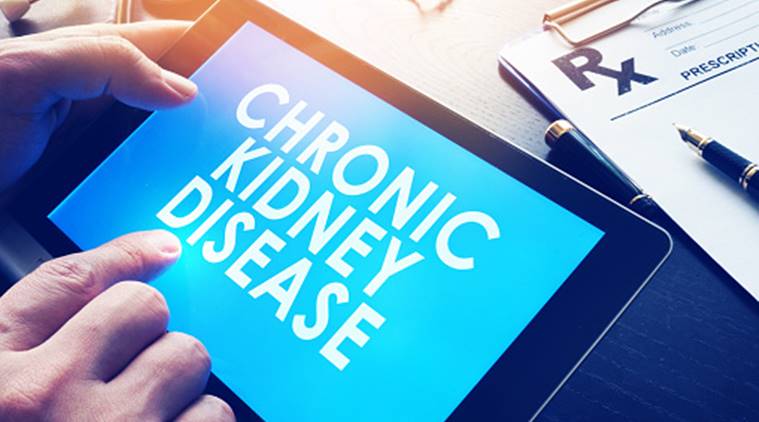Home » Health News »
Chronic kidney disease: Why diabetic patients need to be more careful
Chronic kidney disease (CKD) refers to the lasting damage to the kidneys, which can lead to kidney failure or end-stage renal disease (ESRD) for which you need kidney transplant or dialysis.

World Kidney Day 2020: A 2015 study on the prevalence of chronic diseases in India stated that diabetes and hypertension account for 40-60 per cent cases of chronic kidney disease (CKD) in India. As incidence of lifestyle diseases increase among people in the country, the chances of CKD do too, the study, published in the in the Indian Journal of Nephrology, mentioned.
CKD refers to the lasting damage to kidneys, which can lead to kidney failure or end-stage renal disease (ESRD) for which you need kidney transplant or dialysis. It can also lead to heart disease, which can be fatal.
Causes of CKD
Diabetes is considered to be the leading cause of CKD. And by 2030, India is expected to have the world’s largest population of diabetic patients, the research suggests. Among the other factors adding to the global burden of CKD are kidney stones, urinary infection, chronic glomerulonephritis (damage to kidney filters), overuse of painkiller drugs and use of alternative therapy whose contents are not known.
CKD could also be hereditary, which means the risk increases if you have a family history of kidney diseases. As per a 2018 study in the Clinical Journal of the American Society of Nephrology, genetic inbreeding can also lead to congenital kidney anomalies at birth. Besides, “Poverty, poor sanitation, pollutants, water contamination, overcrowding, and known and unknown nephrotoxins” could also increase the risk of kidney diseases, the study argued.
Read| Here are some warning signs of kidney-related diseases
Symptoms of CKD
According to National Health Service UK, symptoms of CKD show only at a later stage. These include weight loss, poor appetite, shortness of breath, fatigue, blood in urine, insomnia, itchy skin, muscle cramps, headache, and swollen ankles, feet and hands.
How to prevent CKD
While experts emphasise on early detection through screening those with diabetes or hypertension or any family history of CKD as an effective way of controlling CKD, there are also other measures you can incorporate in your daily life to avoid the risk of the disease.
1. Blood pressure and blood sugar levels should be in check or it can progressively cause damage. This can be done with healthy diet and exercise. Monitor your blood sugar and pressure levels regularly and take the recommended medicines.
Read| Progression of kidney disease in diabetics: ‘Starting insulin early checks complications’
2. Avoid having too much of pain killer medicines or unnecessary drugs as they may have side effects and can impact your health.
3. In case of kidney stone or any condition causing blockage of urine, one should seek immediate medical attention.
4. Experts also advocate proper awareness about healthy diet and lifestyle, risks of smoking, and improved antenatal care as important ways to keep CKD at bay.
5. Keep your body weight in check as it helps normalise blood pressure. One should regularly exercise, including aerobic and resistance training, which can help keep blood glucose levels within a normal range.
(With inputs from Dr Bharat Shah, Director, Institute of Renal Sciences, Global Hospital, Mumbai, and Dr Lalit Kumar Agarwal, Medical Director, NephroPlus Dialysis center at Health Point Hospital, Kolkata)
? The Indian Express is now on Telegram. Click here to join our channel (@indianexpress) and stay updated with the latest headlines
For all the latest Lifestyle News, download Indian Express App.
Source: Read Full Article






